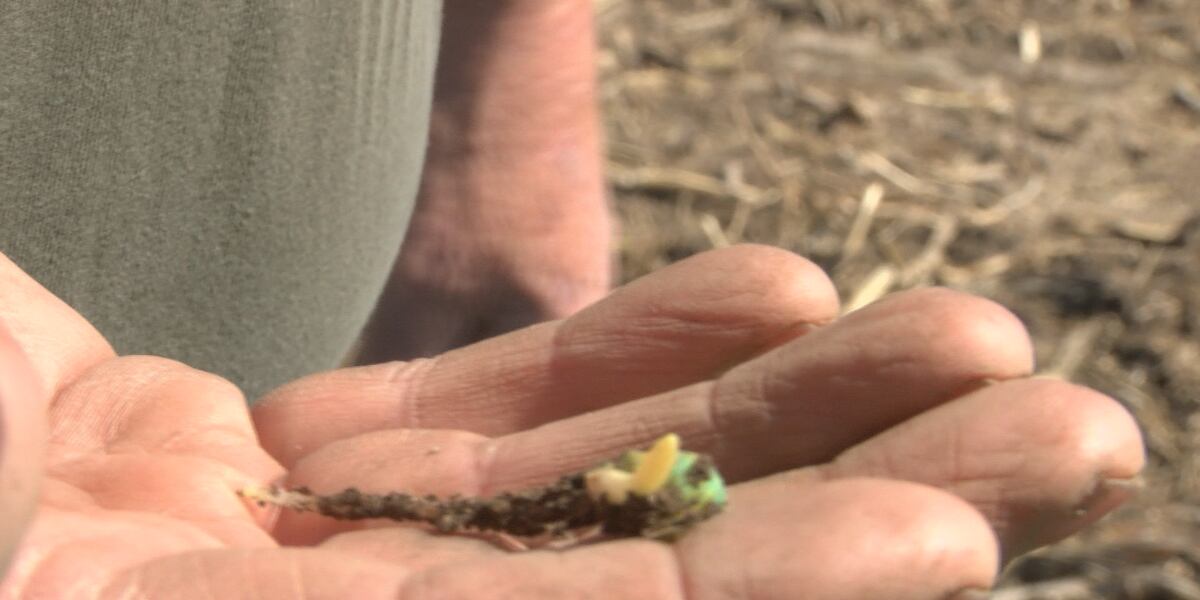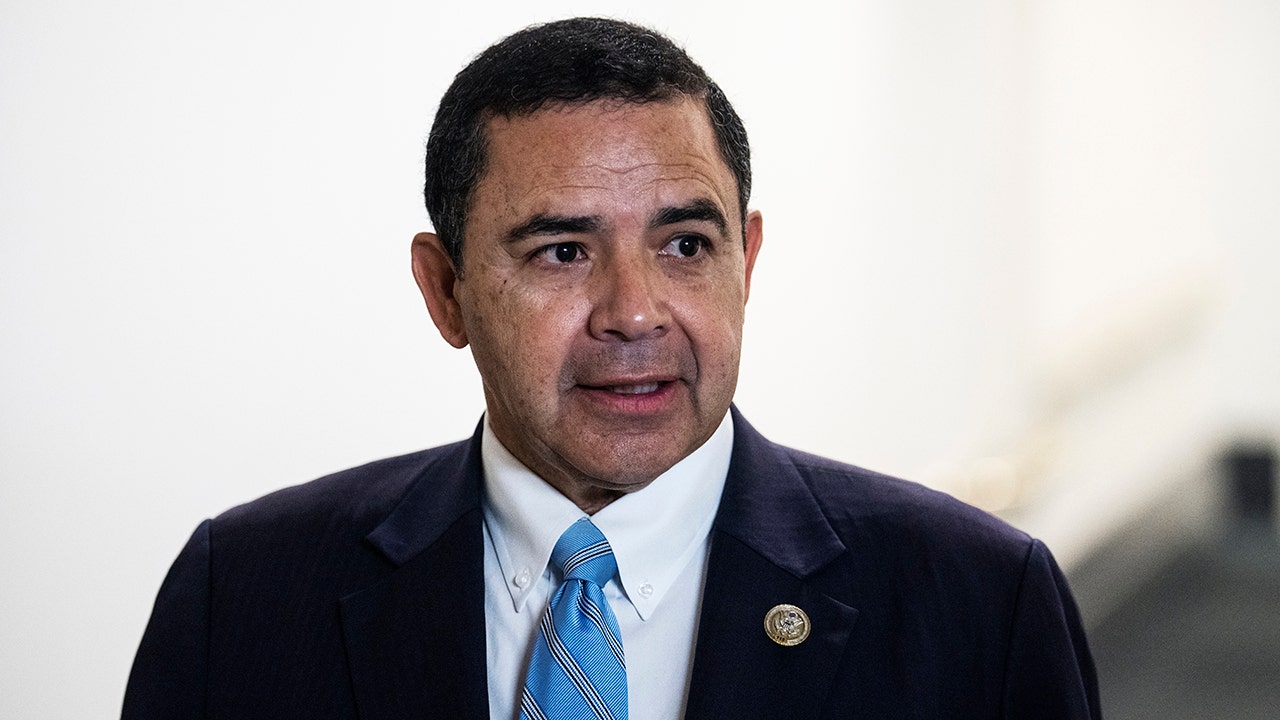Lifestyle
On 'The Tortured Poets Department,' Taylor Swift spares no one : Pop Culture Happy Hour

The Tortured Poets Department is the latest album from Taylor Swift.
Beth Garrabrant/Republic Records
hide caption
toggle caption
Beth Garrabrant/Republic Records
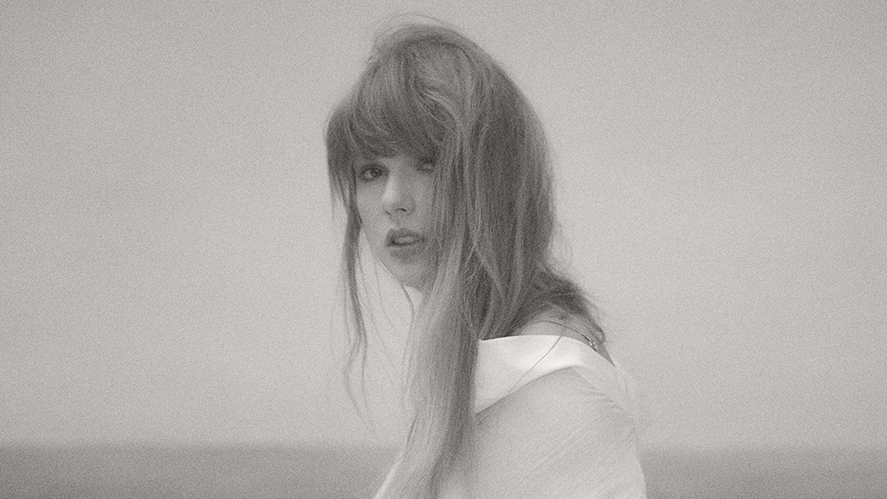
The Tortured Poets Department is the latest album from Taylor Swift.
Beth Garrabrant/Republic Records
Taylor Swift dropped an epic new album that spans two hours — and two high-profile breakups. The Tortured Poets Department delves deeply into two of the singer’s recent relationships — one with the English actor Joe Alwyn and the other with Matty Healy, who’s the lead singer of The 1975. And while Taylor Swift indulges in a few beefs on this record, the target she returns to most often is herself.
Subscribe to Pop Culture Happy Hour Plus at plus.npr.org/happyhour

Lifestyle
Larry Demeritte will be the first Black trainer in the Kentucky Derby in decades : Consider This from NPR

For sponsor-free episodes of Consider This, sign up for Consider This+ via Apple Podcasts or at plus.npr.org. Email us at considerthis@npr.org.
May 1988: General view of the Kentucky Derby at Churchill Downs in Louisville, Kentucky.
Mike Powell/Allsport/Getty Images
hide caption
toggle caption
Mike Powell/Allsport/Getty Images

May 1988: General view of the Kentucky Derby at Churchill Downs in Louisville, Kentucky.
Mike Powell/Allsport/Getty Images
1. Saturday marks the 150th running of the Kentucky Derby at the Churchill Downs Racetrack.
Crowds will cheer as the thoroughbreds thunder around a mile and a quarter track. The race itself only lasts around 2 minutes, but the tradition runs deep in America.
Excitement ramped up a few days ago as post positions were assigned to the horses in this year’s race. The last horse to be called was West Saratoga – a longshot gray thoroughbred. Its owner Harry Verruchi credits veteran horseman Larry Demeritte for finding the horse, saying that Demeritte “can look to a horse and see more than normal people can see.”
Larry Demeritte is a horse trainer in his 70s. In an interview with NPR’s Scott Detrow, he said he’s been around horses for as long as he can remember.
“My dad was a horse trainer and he put me on the horses back when I was pretty young… I know them before I know myself, and I know I wanted to be in the horse industry,” he remembers.
“I said ‘Well, I don’t want to be a jockey because their careers don’t last long. I know I’m not going to be a worker, so I have to be a horse trainer because I could do that til’ I die.’”
2. Horse racing wasn’t always so exclusive.
Demeritte is the first black trainer to participate in the Derby in 35 years, and the first person ever from the Caribbean to do so. Before 1989, there hadn’t been a Black trainer since 1951. Black trainers, jockeys, and grooms are a rarity at the Derby these days, but that wasn’t always the case.
The first Kentucky Derby was in 1875. Oliver Lewis won the first Kentucky Derby, and his horse was trained by Ansel Williamson, both of whom were Black men.
Ronald Mack is the founder of the Legacy Equine Academy, and in a Kentucky Educational Television documentary about the history of Black horsemen, he noted that 15 of the first 28 winners of the Kentucky Derby were Black jockeys, “And so there was dominance and prominence in the industry.”

Black people played a key role in the early history of the Kentucky Derby, but they were forced out through Jim Crow segregation. Today, Demeritte hopes the sport can open its doors to more people:
“We need to sell our sport better than we do… We need to form more syndicates because it’s getting pretty costly now to own a racehorse. It’s like any other sport… car racing and all of them, they all have syndicates…so [many] sponsors. I feel like that’s what we have to do to let the middle class know in America that it’s not a sport of kings. Anyone can play it, and the reward is so great when you have success in it.”
3. Persisting through illness.
Demeritte has faced three separate cancer diagnoses over the years, as well as a rare disease called amyloidosis. Despite struggling with his health, he says he’s kept a positive outlook through his faith in God.
“I feel like I’m here for a purpose. And I think this is my purpose, the opportunity to make a difference in someone’s life… Anything is possible. But you have to work at it, you know? That’s the way I look at life.”
He says he never lets his illness stop him from being focused on the task at hand. And looking toward this weekend, he’s excited for the big day, and he’s confident about West Saratoga’s chances.
“When you do things you love, it’s nothing tough about it. Get that smile put on your face when you see a horse train good that morning for you. And that’s the good thing is Saratoga, he don’t have too many bad days,” he says.
“He’s such a cool horse.”
For sponsor-free episodes of Consider This, sign up for Consider This+ via Apple Podcasts or at plus.npr.org. Email us at considerthis@npr.org.
This episode was produced by Jonaki Mehta.
It was edited by Jeanette Woods.
Our executive producer is Sami Yenigun.
Lifestyle
Costa Mesa Police Chase Down Juveniles Accused of Stealing Car on Foot

TMZ.com
Cops in Orange County got their exercise in to end the week — they had to chase down a handful of alleged juvenile delinquents accused of jacking a car … and the video’s wild.
Costa Mesa PD tells TMZ … officers came across a vehicle that had been reported stolen Friday in the middle of the day — and when they tried initiating a stop, we’re told the car didn’t come to a stop … so the police had to give chase.
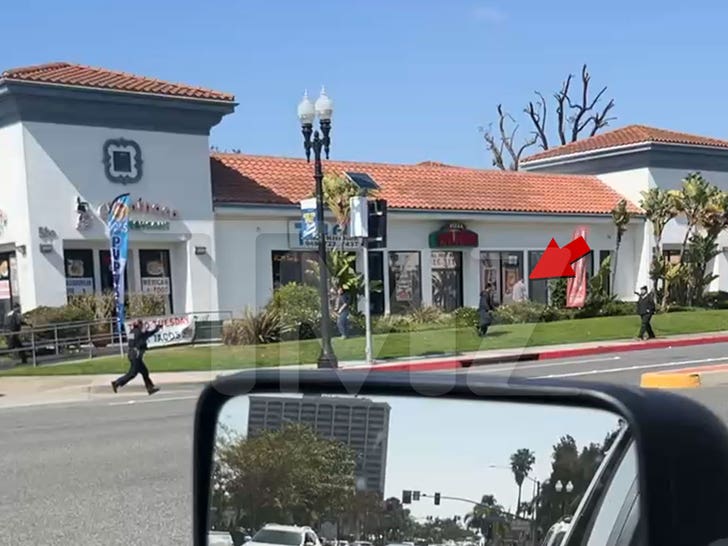
We’re told there was a short pursuit, which ended with the subjects of the vehicle bailing on the car … and cops having to chase them down on foot — something captured on camera.
TMZ got a hold of the footage … and yeah, it’s pretty intense — you can see the whole thing.
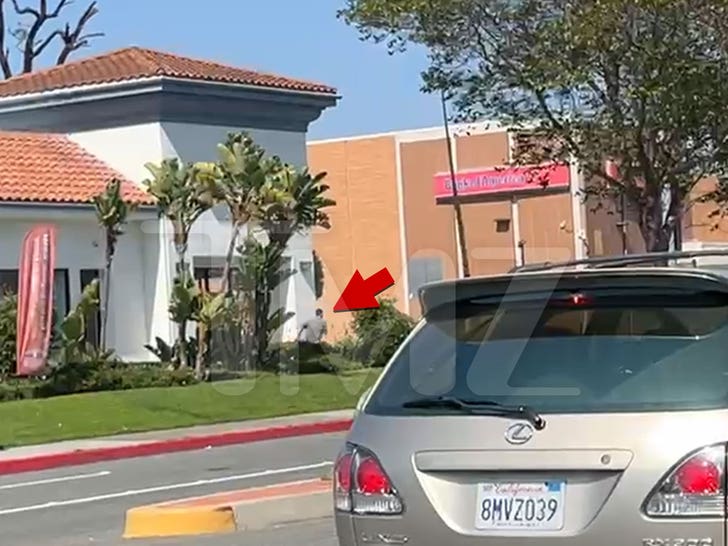
Check out the clip … you can see what looks to be a few people taking off running through the road, where a ton of cars are stopped at a light … with what looks like a lot of police activity on the scene — including multiple cruisers and even helicopters in the sky too.
The cops that end up going after these people appear to have their weapons drawn — but luckily, no shots are fired … and in the end, it looks like they were able to nab the suspects.
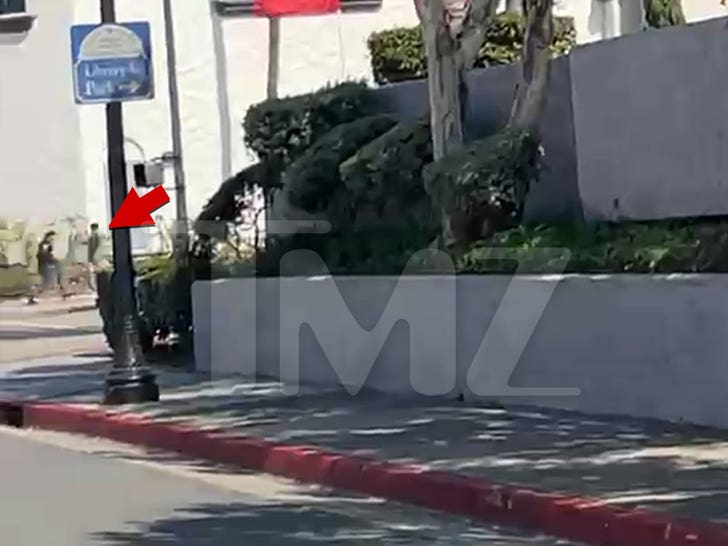
CMPD tells us three people were taken into custody … and we’re told they were all teens. No word on what charges they might’ve been booked on at this point.
Lifestyle
Why Jenny Slate sometimes feels like a 'terminal optimist' : Wild Card with Rachel Martin

Jenny Slate says she’s always looking for the light in the dark.
Photograph by Emily Sandifer; illustration by NPR
hide caption
toggle caption
Photograph by Emily Sandifer; illustration by NPR

Jenny Slate says she’s always looking for the light in the dark.
Photograph by Emily Sandifer; illustration by NPR
Welcome to Wild Card from NPR, where host Rachel Martin asks guests randomly-selected questions from a deck of cards. Tap play above to listen to the full podcast, or read an excerpt below.
I spent a lot of years hosting news shows at NPR and I got really tired of covering stories that reinforced how bad everything in the world was.
Basically, I was burned out. But it was also bigger than my job. My dad died unexpectedly and my mom had died a long time ago, so I felt empty and sort of lost. And I felt this urgency. All I wanted to do was think through really big questions about what it means to be alive. What experiences made us who we are? What lessons do we have to learn over and over? What beliefs help us make sense of the world?
And when I started opening up about this to friends, I realized that a lot of other people were also swimming around in these kinds of questions. So I thought, what if we talked about this stuff out loud? And wouldn’t it be cool to do it with people who, on the outside, seem like they’ve got their existential act together? But that’s a little intimidating. So we came up with this idea for a game to make it easier.

This is the way it works: we made this little deck of cards with really big questions on them. My guests pick cards from the deck at random. And then they answer the questions.
And I’m telling you, it’s amazing what happens. They start talking about ideas and experiences they haven’t talked about before, and then, I’m doing the same thing. I always leave these conversations feeling better — feeling that no matter how different we are, we’re all working through the same stuff.
And my hope is that this is going to happen for you too. That you’ll find yourself thinking about these questions and how they fit into your own life.
And I couldn’t have dreamed up a better guest to get things started than Jenny Slate. She is one of the deepest, most interesting comedians out there, in my opinion.
That comes out in her stand up and her movies, especially Marcel the Shell with Shoes On, which is one of the weirdest, most random, beautiful movies. You might know her from Obvious Child or for her role as Mona-Lisa Saperstein from Parks and Recreation.
This year, Slate released her latest comedy special called Seasoned Professional, which, at this point in her career, she really is — even if she’s still figuring out life like the rest of us.
The trailer for Jenny Slate: Seasoned Professional.
YouTube
So, let’s shuffle the Wild Card deck and draw our first question. Which is…
Question 1: What’s an ordinary place that feels extraordinary to you because of what happened there?
Jenny Slate: This sounds maybe gross or something, but I really feel that way about our bedroom in Massachusetts. And not because I’m like, you won’t believe what went down in here [laughs].
My husband is someone I met as a stranger and I really felt that I would not see him again. I thought about him a lot and I heard from another friend about where he lived in Massachusetts. And it felt to me that he lived almost in another dimension.
And I just remember the first time that I went to sleep in his bedroom and I was like, wow, this is a real place. It’s kind of like seeing the Eiffel Tower, like, I can’t believe it is real. And even though we live in that house together now, I still feel that way.
It’s a house that was built for his great grandmother, and when he lived there by himself it was filled with, like, a hundred years of stuff. And it felt very bachelor-y, like Dickensian bachelor-y. Like, there’s a taxidermied tortoise in here and heavy draperies from before. And now that we live there, it’s very sparse. I prefer a more Shaker aesthetic.

Rachel Martin: You had been married before. Did something have to change in you to make this relationship work, or was it just timing?
Slate: I couldn’t stop the timing of falling in love with him. And it was right for both of us to fall in love. But while walking down that path, I was very aware that I was injured. And I had to learn to trust — not just the big things, like I hope this person won’t lie to me, but also, I hope they won’t tell me they’re having one experience while having another. I hope they won’t secretly resent me for the things that they first felt were attractive about me.
As a performer, you want to shine your power out and that can be really attractive to people. But then all of a sudden they can get angry about it. That it’s not just for them. And so I do think that I really had to do a lot of work on my side of the problem in terms of learning to trust self-worth issues. But I am also an operatic romantic. I just love love, and that really helps.
Question 2: What is something you think about very differently today than you did 10 years ago?
Slate: Dressing. Not salad dressing, I’ve always loved it and I’ll never stop. Dressing my body.
Martin: What is different about how you think of that?
Slate: I’m pleased to say that I’ve come through a fair amount of internalized misogyny. So 10 years ago I was 31 and it was like, “You better wear that bikini.” You know, just these horrible, brutal feelings about my physical body and about how I needed to present what sexiness was and how much of my body to show.

I’ve always had a pretty clear sense of what I find to be beautiful. But I feel like it was sort of muddled up, and now I just want to dress like Jane Goodall, but like sometimes with a crop top. Like, let it flow.
I used to feel that I had to prove that my butt was there. And now I’m like, it’s not relevant whether or not you think my butt is there. I know it’s there. My toilet knows it’s there. And my husband knows it’s there. And, unfortunately, some of my friends know it’s there.
Question 3: Is there anything in your life that has felt predestined?
Slate: I don’t really connect to the concept of destiny. Sometimes I get scared and ask my husband, “What if we hadn’t met each other? What were the chances?” And he always goes, “100%.” And I like that. I don’t know about the soul mate thing, and I know it sounds so cheesy, but I do feel like he’s my spiritual match.
I guess I believe in a spiritual eventuality, which you could call destiny, but it’s more like a point on the globe. It’s like a fixed point, but it doesn’t mean you’ll get there. You still have to do things to get there. It’s an option.
But no, I’ve never felt like anything was predestined. I’ve just felt as if every now and then there’s a kind of meteor shower and good fortune falls into my life like that.

Martin: Have you always been good about appreciating the meteor shower or has that come later in life for you?
Slate: I think I actually have been. And I think it’s because my mother, who I love dearly, can be rather negative. If you ask her to tell a story, it often sounds as if it were cloudy in the sky, like it’s just with this sort of tinge of dread and negativity. And it’s kind of drama. It’s drama.
My response to that has been to be, no — sunshine! And it can also make me be a terminal optimist in the worst way, like almost a fool. But I think I’ve always had that kind of look out. It’s not a Pollyanna-ish thing. It’s looking for light in the dark. That’s what it is.
To listen to this full conversation, tap play at the top for the Wild Card podcast.
-

 News1 week ago
News1 week agoLarry Webb’s deathbed confession solves 2000 cold case murder of Susan and Natasha Carter, 10, whose remains were found hours after he died
-

 News1 week ago
News1 week agoFirst cargo ship passes through new channel since Baltimore bridge collapse
-

 World1 week ago
World1 week agoHaiti Prime Minister Ariel Henry resigns, transitional council takes power
-

 World1 week ago
World1 week agoSpanish PM Pedro Sanchez suspends public duties to 'reflect'
-

 World1 week ago
World1 week agoUS secretly sent long-range ATACMS weapons to Ukraine
-

 Movie Reviews1 week ago
Movie Reviews1 week agoHumane (2024) – Movie Review
-

 News1 week ago
News1 week agoAmerican Airlines passenger alleges discrimination over use of first-class restroom
-

 Education1 week ago
Education1 week agoVideo: Johnson Condemns Pro-Palestinian Protests at Columbia University



